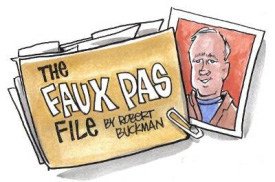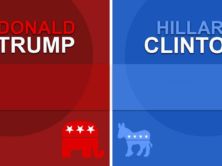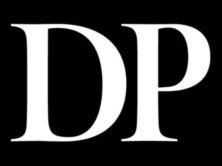Robert Buckman's Faux Pas Files column highlights common spelling errors in headlines, subheds, and cutlines.
As promised, after castigating my broadcast colleagues in the last column for their sloppiness and over-reliance on spell-checkers in writing supers and crawlers, this time around I will highlight—constructively, of course—similar gaffes that I’ve seen in print so you can avoid them.
When I was asked to contribute this column and come up with a name, I didn’t have to ponder for long. For 20 years, I have clipped careless boo-boos from newspapers and magazines and stuffed them into a manila folder that I labeled simply “Faux Pas”—the original Faux Pas File.
It is now so bulging that I have decided this time around to focus only on spell-checker-proof mistakes appearing in headlines, subheads and photo cutlines.
 By necessity, a disproportionate number of them are from the two Louisiana newspapers to which I have had daily access over these two decades, The Daily Advertiser in Lafayette and The Advocate of Baton Rouge, which publishes an edition for the Lafayette area known as Acadiana. So, I’m not “picking” on these two papers, and desk editors elsewhere have no cause to be smug. These are the types of mistakes committed everywhere on a daily basis. I’ve seen ‘em, I just don’t always have time to clip ‘em.
By necessity, a disproportionate number of them are from the two Louisiana newspapers to which I have had daily access over these two decades, The Daily Advertiser in Lafayette and The Advocate of Baton Rouge, which publishes an edition for the Lafayette area known as Acadiana. So, I’m not “picking” on these two papers, and desk editors elsewhere have no cause to be smug. These are the types of mistakes committed everywhere on a daily basis. I’ve seen ‘em, I just don’t always have time to clip ‘em.
To cite just one example of a common miscue, there was this six-column headline (which compounded the error) in The Advocate on March 20, 2005, that read:
Miss. community honors it’s WWII role
Well, its nice to know that.
Here’s another one of the most persistent problems, times three. From the Jackson (Miss.) Clarion-Ledger on April 5, 1992, this subhead ran with a feature about Ross Perot:
Republicans and Democrats alike are left speechless and uncertain of the Texas billionaire’s affect on their presidential campaigns.
And from The Advertiser on Feb. 16, 1993:
Injuries can have
affect on seedlings
And from The Gainesville (Fla.) Sun on Aug. 31, 2003, this subhead on a feature about the assassinations of Presidents James A. Garfield and William McKinley:
Two killings, two distinctly different affects on history
The Gainesville Sun used the wrong form of affect/effect in this subhed from 2003. (Credit: Google Archives, The Gainesville Sun)
Did you catch it? In all three heds, of course, the correct words are effect or effects–not affect.
Another common mistake is only now being caught by some spell-checkers (including mine), because previously it was considered an alternate spelling and it’s a common British spelling, but it’s a no-no in U.S. journalism (I don’t know about our Canadian counterparts). From The Advocate on May 5, 1994:
Finance panel
advises council
to pay judgement
And the banner headline in The Advertiser on Jan. 26, 1995 over an AP story about the O.J. Simpson case:
Prosecutors ‘rushed to judgement’
I assume everyone noticed the common denominator. It should be judgment! This is one of the most commonly misspelled words, by journalists and everyone else. I see it misspelled on broadcast supers at least on a weekly basis.
Here’s another commonly misspelled word that a spell-checker cannot help you with. The hed on a travel feature in The Advertiser on April 6, 1997:
Columbia’s Amazon
caters to tourists
And this headline on an undated AP story about Ingrid Betancourt that appeared in The Advocate in 2004:
Kidnapped Columbia leader urges rescue try
Folks, if you don’t learn anything else from reading this column, for God’s sake learn that the country in South America is spelled Colombia! No, “Columbia” is not an accepted Anglicization; it’s wrong.
A spell-checker will not help because of the District of Columbia, British Columbia, Columbia University, the space shuttle Columbia, Columbia, S.C., and “Columbia, the Gym of the Ocean.” I just happened to clip these two headlines, but I’ve seen it wrong too many times in print and on broadcast supers over the years. This is especially important because of this Sunday’s presidential election in Colombia, so be sure you get it right in your headlines.
Then there are those pesky transpositions that a spell-checker won’t catch and are difficult to detect with a cursory read. From an undated wire service story in The Advocate during the 1992 presidential campaign:
There’s more clucks than yuks on the campaign trial this year
Granted, some campaigns can be trying, but that should be trail.
Then there was this self-proving headline in The Advertiser sometime during the 1990s:
Louisiana fairs poorly in literacy study
Hey, really? A literate person knows that should be fares.
From a subhead under the banner headline in The Advocate with an undated Geneva-datelined Associated Press story during the Clinton administration about U.N. inspections in Iraq:
Albright says
Iraq indicting
possible deal
No, Iraq wasn’t condemning, or “indicting” a possible deal. If you read the story, Iraq was indicating a possible deal. One missing letter changed the meaning entirely, but there’s no red squiggly line under “indicting.”
From a headline on a feature story in my own university’s student newspaper, The Vermilion, on Feb. 19, 2003 (where did I go wrong?):
Sushi: An ancient cuisine with a modern flare
Flambéed sushi? I don’t think so. Make that flair. Even worse, The Vermilion had this ragged headline on Nov. 17, 1995, about the latest Student Government Association meeting:
SGA puts the breaks on replacing
PBS with HBO
Oh, please, give me a brake!
The Advertiser had this banner headline, on Nov. 16, 1997, about the funeral of a local former Olympic athlete, Rodney Milburn Jr.:
‘We have lost a solider’
Lost a what? Oh, you mean soldier. If you write it, you’ll find no red squiggly line under “solider,” because it’s a word that means more solid.
The Advertiser had another banner hed in its Sunday business section on March 24, 1991, that read:
Bechtel company quite, powerful giant
Besides not having a verb, this hed seems to be saying Bechtel is quite powerful, but upon reading the article AP article it became obvious the headline writer meant that Bechtel is quiet and powerful.
Not to leave out The Advocate, it had a banner headline on Feb. 13, 2007, that read:
Panel: Hire
insurer aid
That ‘s the kind of hed that makes a reader go, “huh?” I read the lede, and as I suspected, it reported: “A price of up to $800,000 is being estimated as the cost of hiring a consultant to recommend ways to improve operations at Louisiana Citizens Insurance Corp.
In other words, the panel members wanted to hire an aide.
Then there was this undated headline in The Advertiser in the 1990s:
Governors want to tax heath plans
Yes, we have lots of marshy land in Louisiana, some of it now coated with goo thanks to BP, but that’s supposed to be health.
A headline in The Advocate over an undated Susan Estrich column read:
Military training should emphasis winning wars
Uh, you mean emphasize?
Regret the Error caught this headline misspelling. New Hampshire and Vermont’s Valley News misspelled the newspaper’s name in a 2008 issue. (Credit: Regret the Error)
We print people, and I’m no exception, tend to be careless sometimes when it comes to editing cutlines as well as headlines. On March 8, 1992, The Advertiser carried an AP photo of presidential candidate Bill Clinton, sporting an LSU T-shirt, jogging with a group of people in Baton Rouge (he carried Louisiana both times). The cutline read:
“Presidential hopeful Arkansas Gov. Bill Clinton takes an early morning job in Baton Rouge prior to a rally at Southern University. Clinton was joined by others in his job, as he campaigned for Louisiana’s Super Tuesday primary.”
Looks like Clinton had taken on a paper route! Not once, but twice the cutline said “job” instead of “jog.” That’s a classic case of over-relying on a spell-checker.
On Feb. 6, 1996, The Advocate carried a clip from a “Nova” program on PBS about efforts to control the Ebola virus outbreak in Africa. According to the cutline, the program was titled “Plaque Fighters.” Sounds more like a program about dental hygienists!
So, don’t be smug or careless. This may be the 21st century, but there’s still no substitute for thorough, old-fashioned eyeball editing.
 |
ROBERT BUCKMAN, Ph.D., is an associate professor of communication and head of the print journalism sequence at the University of Louisiana at Lafayette. He is a member of both the Ethics Committee and the International Journalism Committee of the Society of Professional Journalists. He is the author of a reference book on Latin America and a regular freelance contributor to newspapers on Latin American politics. |
CORRECTION - June 10, 2010 08:35 AM
Thanks to reader Thomas Ferraro for pointing out that the phrase “just deserts” is not spelled “just desserts.” This story has been updated to remove a section about Newsweek’s use of “just deserts.” See Snopes and Free Dictionary. We regret the error.






